With Lars Jessen to Brinkebüll
27.07.2022 | Cinema release "Mittagsstunde"
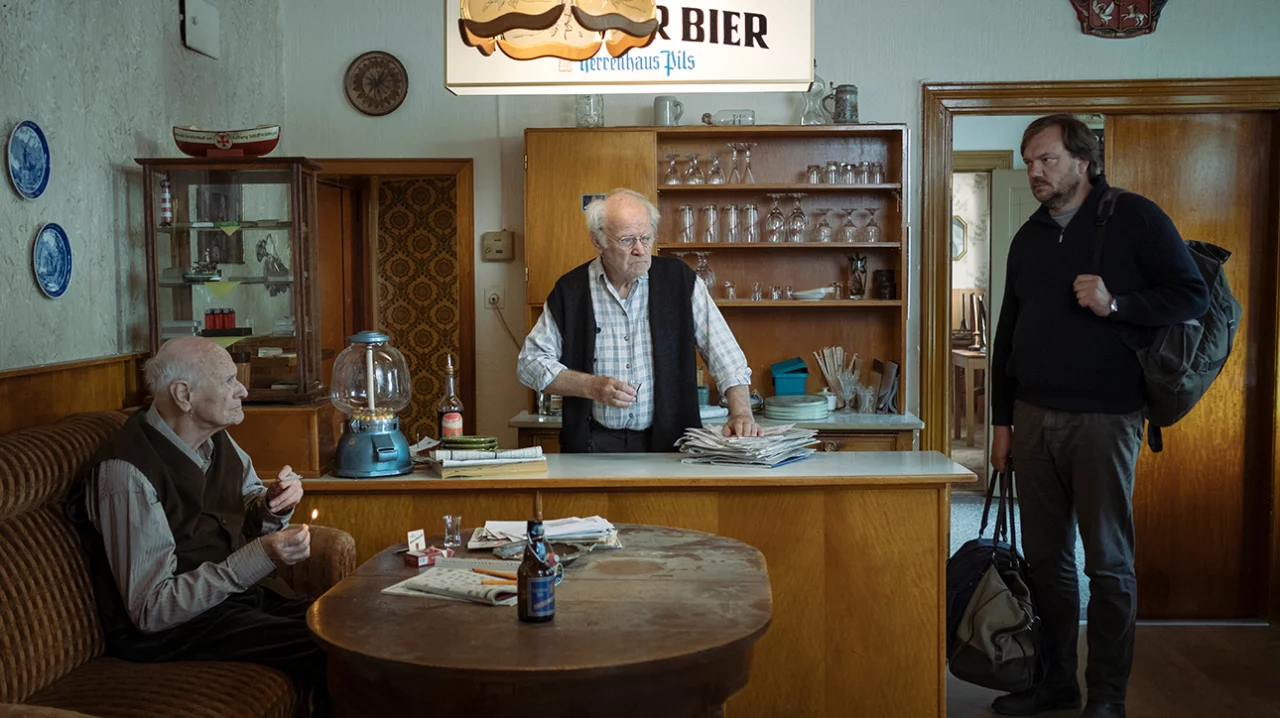
Directors Lars Jessen has filmed the Dörte Hansen novel "Mittagsstunde" in Schleswig-Holstein, the northernmost federal state in Germany, between the lush marshes and the hilly Geest. The village life of the 60s and 70s described so faithfully in the film is almost impossible to find today. But the film, starring Charly Hübner, will bring it back to life in cinemas from 22 September.
Charly Hübner plays the main character, Professor Ingwer Feddersen from Kiel, who lives in a three-way relationship in a shared flat. In a bout of midlife crisis, he takes an extended break to care for his elderly parents in the North Frisian village of Brinkebüll, who are actually his grandparents, and to help out at their inn. In his search for his childhood, Feddersen not only realises his roots, but also that he needs a new start in his present life. Ingwer Feddersen painfully learns that the village of his childhood, the shop, the bakery, the storks on the village church and the humpbacked village street with its cobblestones fell victim to land consolidation in the 1970s.
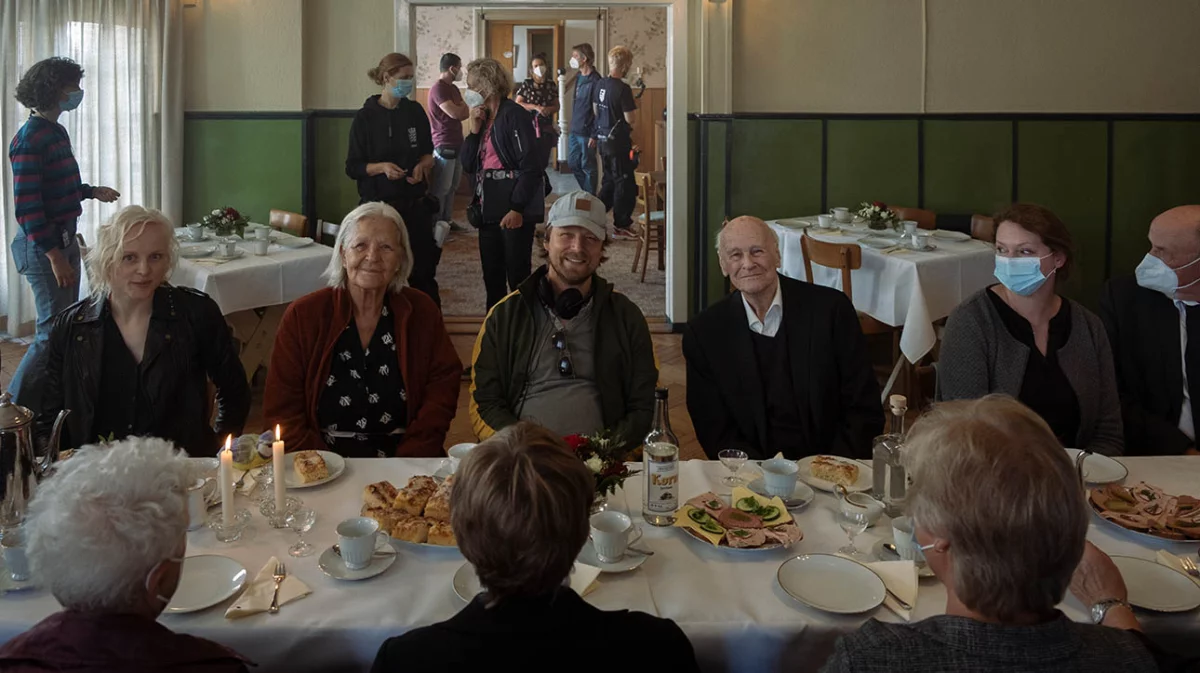
Lars Jessen is very familiar with this lost village culture in Schleswig-Holstein, as presented in the novel "Mittagsstunde". Born in Kiel, he moved to the countryside with his mother when he was a child, where he lived in a drop-out flat-sharing community. "I know what village life was like back then, the parties with the cream cake at midnight, the Sunday morning pint, hanging out at the bus stop in the mornings, afternoons and evenings." These everyday journeys, the frequently steamed-up windows behind which the landscape blurs, have remained in his memory.
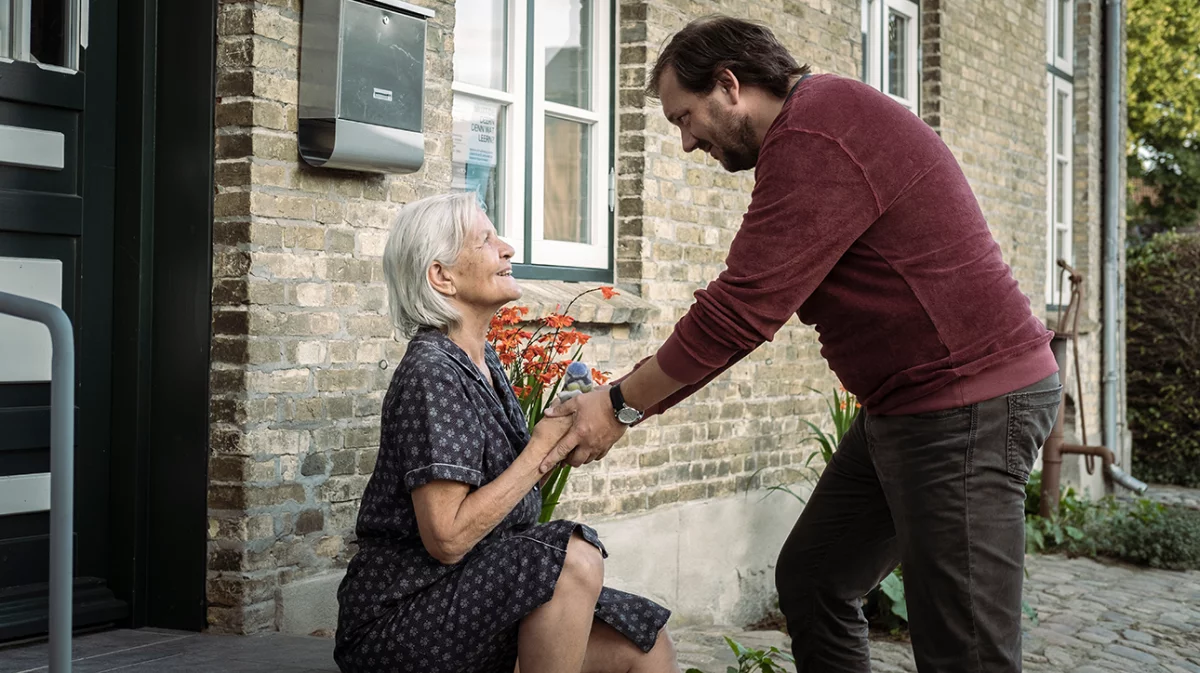
The fictitious village of Brinkebüll can no longer be found in today's reality, and certainly not in a 60s or 70s look. So the main motifs of the fictitious village had to be realised in six different places between Schleswig and Husum. The inn is located in Sollbrück, a district of Sollerup. Jessen visited the central motif in advance together with novelist Dörte Hansen - and both agreed that it was the Feddersen family inn they were looking for. A lot of production design work had to be done to travel back in time to Ginger's childhood. "But everything was there. The parlour, the ballroom with the scuffed parquet flooring, the rooms and the barn for the cattle," says Jessen. Jessen filmed the old street with the tree where you turn into the village street in another town; the village shop, which is now home to a daycare centre, is located in Wöhrden in the district of Dithmarschen. The Directors knows this region very well from his earlier films "Schimmelreiter" and the Documentary "Krugsterben".
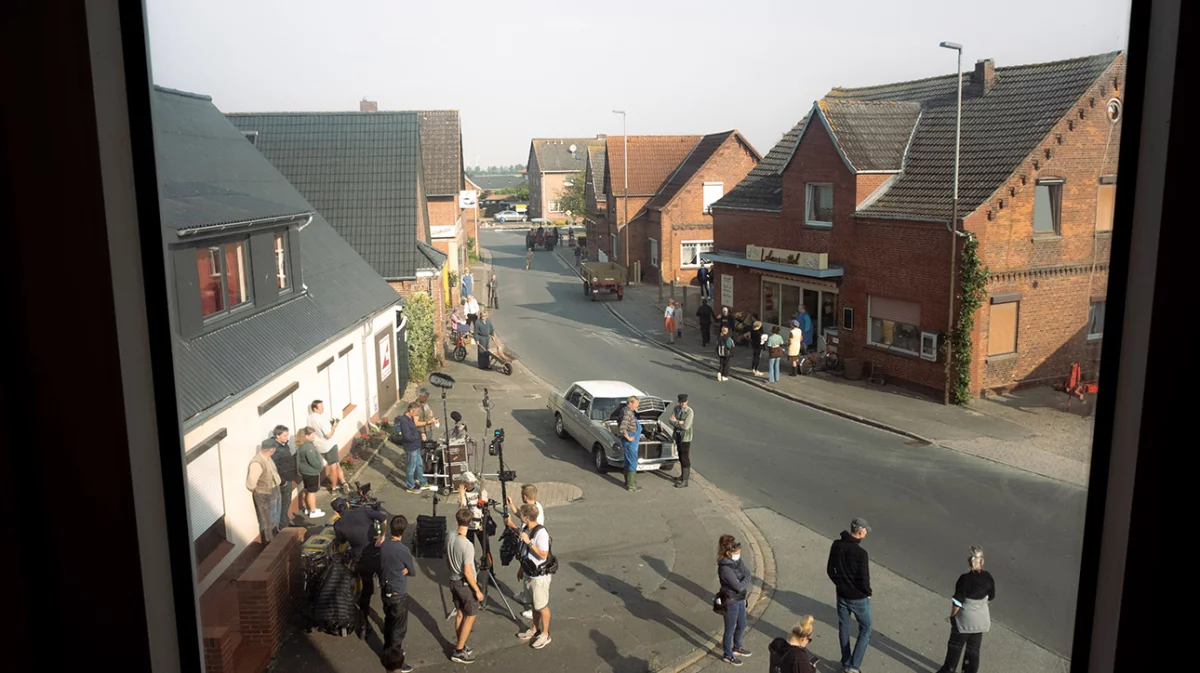
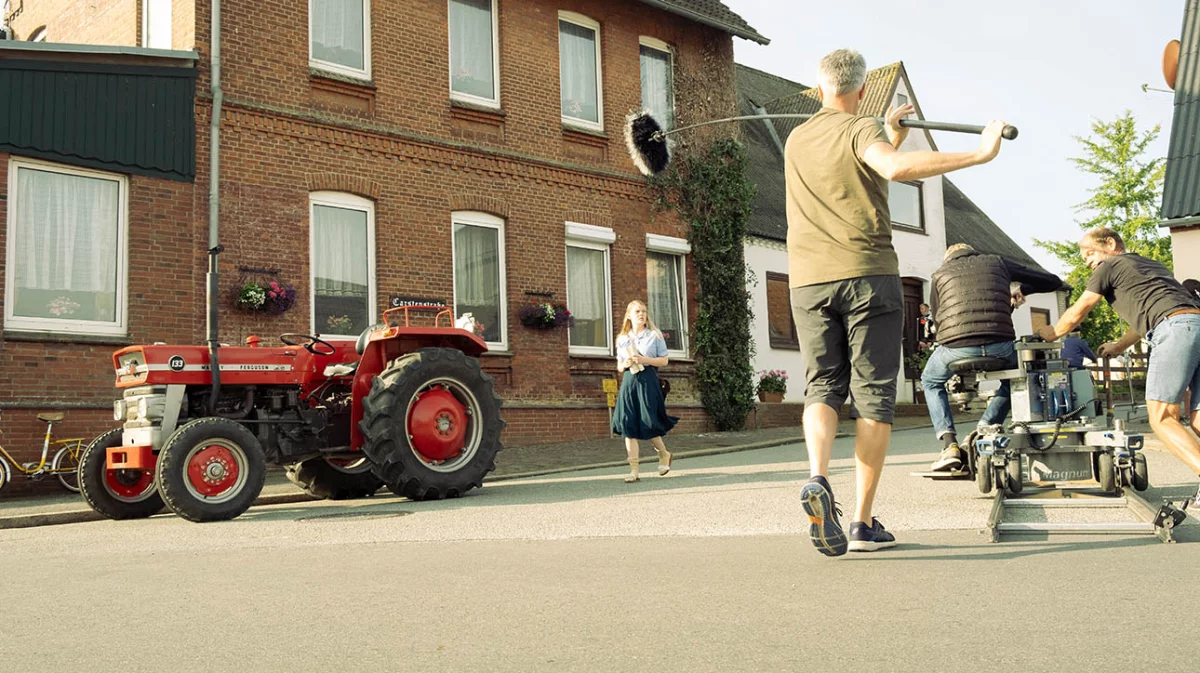
It was a challenge to show what the landscape looked like before the land consolidation, with the wooded field boundaries, the curtilages and the former country lanes: "Because today we drive through corn deserts, corn and biogas plants everywhere and no more cows in the fields. We were lucky enough to find one or two things that still look like the old country lanes," says Lars Jessen. Driving through this landscape is also a recurring motif, as Ingwer Feddersen enjoys commuting home from university in Kiel to the North Frisian Geest. West coast residents call this "travelling in between".
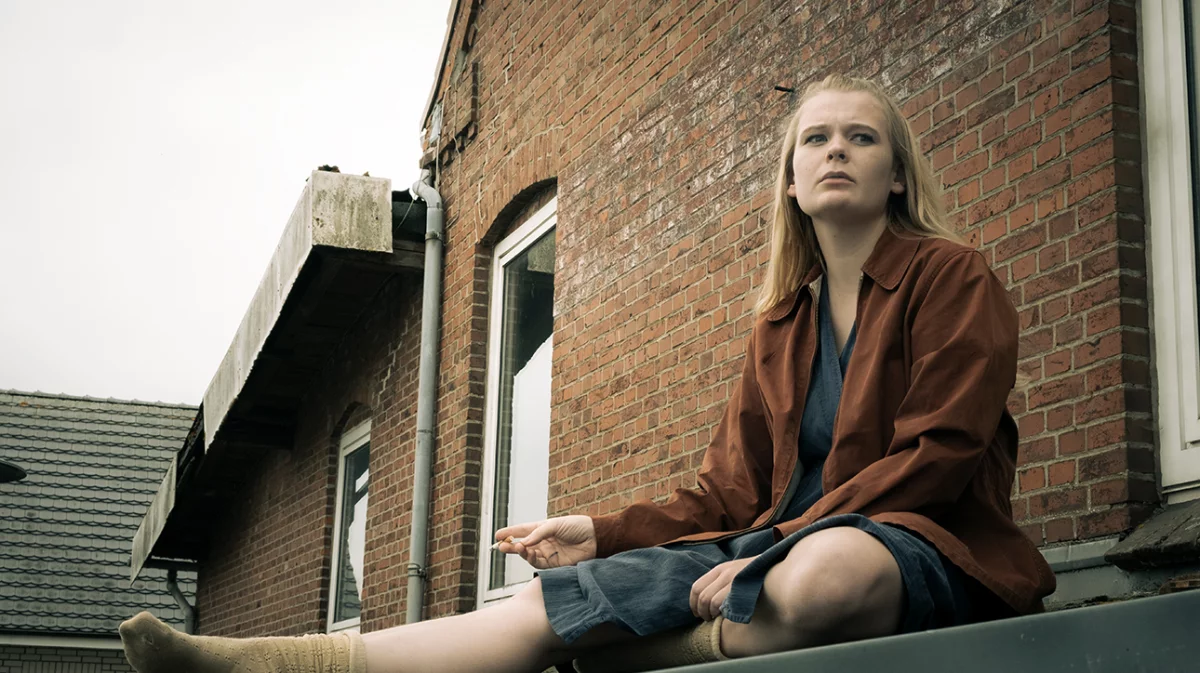
Lars Jessen, who also acts as Executive Producer for this family drama, worked closely with the novelist. She was always involved because she was interested in how her novel could be told on film. But she was also able to let go as the relationship of trust grew. In general, the process of developing the material was a team effort, for which Script Writer Catarina Junk was also very open; dramaturge Bernhard Gleim and Florida employee Louisa Luckert were also involved. The authentic portrayal of village life with its constellation of characters in the novel has been strongly concentrated on the inner family for the film. In addition to Charly Hübner, Peter Franke and Hildegard Schmahl can be seen as the old Feddersens; Rainer Bock, Gabriela Maria Schmeide and Gro Swantje Kohlhof, among others, play the roles of the younger ones.
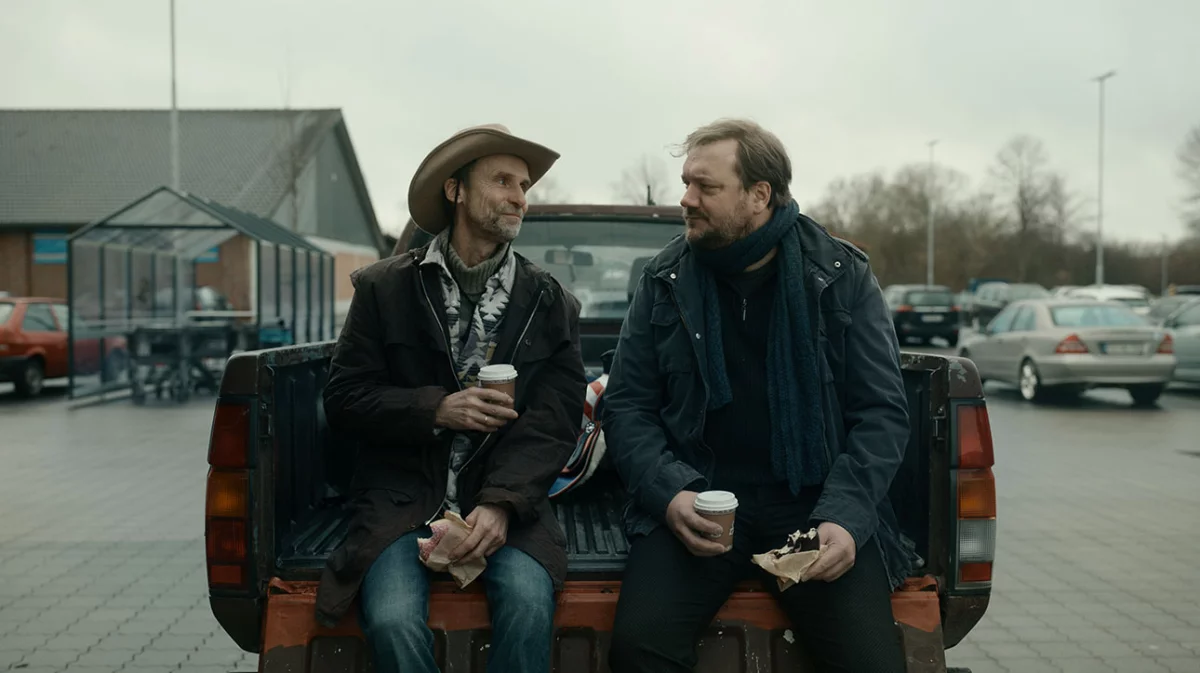
The film largely follows the open structure of the novel. The different periods - the 60s and 70s and today - were filmed in individual blocks. "We actually shot three films: Ingwer growing up in the village, the present day in the inn with his grandparents and the flat share in Kiel, Ingwer Feddersen's other world," says Jessen. The film was edited at Optical Art in Hamburg, where a large part of the post production also took place, together with editor Sebastian Thümler.
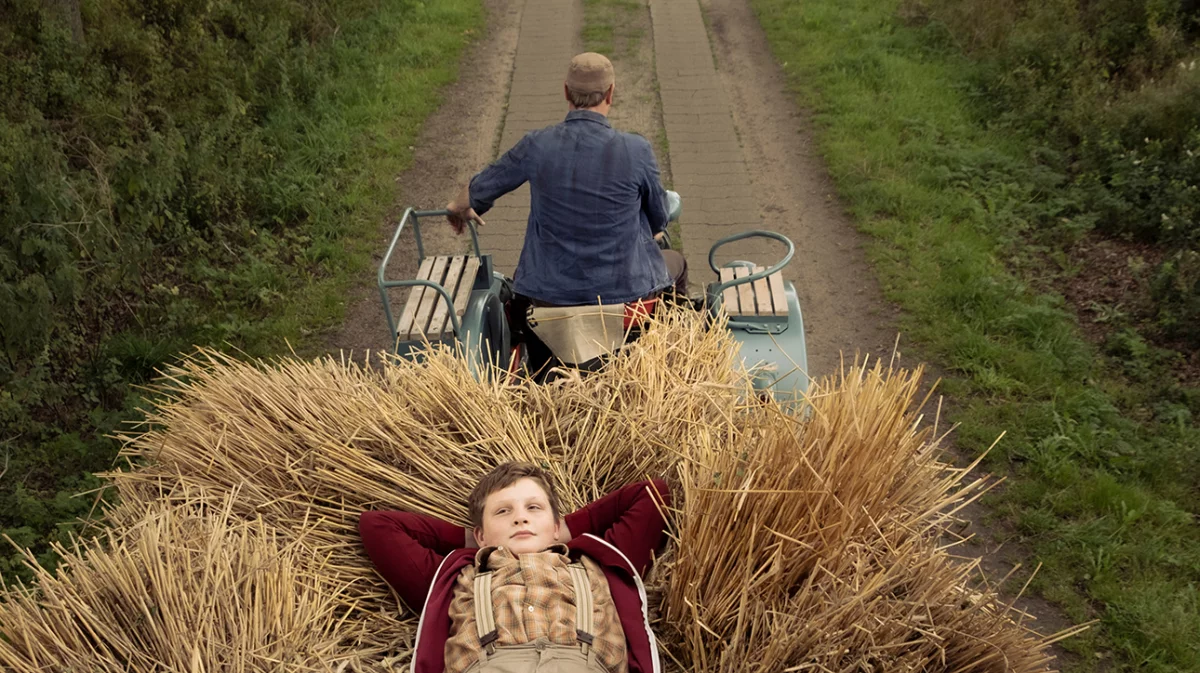
Jessen, a pioneer in green filming, worked with green consultant Annika Kruse to focus on minimising the carbon footprint of this production as well. Particular emphasis was placed on regional products for the catering, meat was reduced and the CO2 values were shown for each meal. It became clear that dairy products can also be problematic in addition to meat consumption. These shoots also scored well in terms of energy supply because the most important motifs were already planned for the long term, which meant that environmentally harmful diesel generators could be largely dispensed with.

The balance sheet for the journeys does not look so good. Due to the fact that there were many motifs and the team and cast had to be spread across different hotels and accommodation during the holiday season in midsummer, a relatively large number of journeys were made. "We came up against the social glass ceiling again," Jessen sums up, because there are no e-cars and low-carbon lorries for hire that are needed for film productions. Initiatives and Fundings have further advanced green filming. What is still missing is a regulatory framework on the part of politicians and clients such as broadcasters in order to finally have alternatives that are more environmentally friendly, for example in the area of mobility.
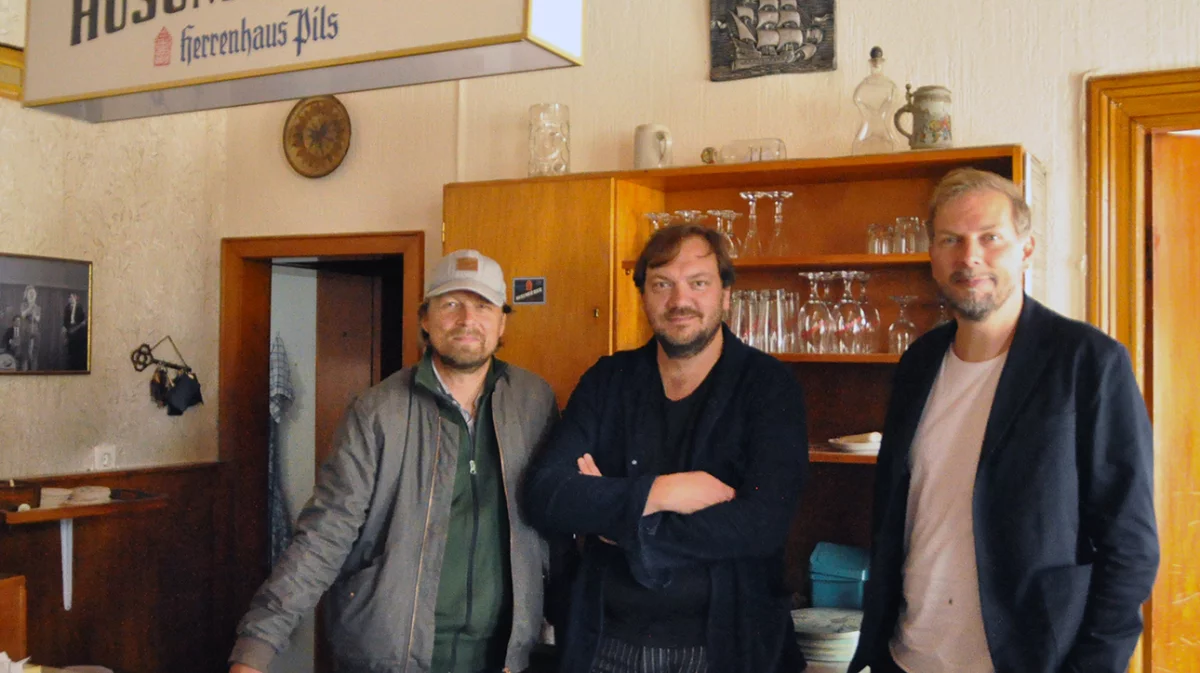
Majestic Distribution will release "Mittagsstunde" in cinemas on 22 September 2022. The film will then also be shown in a Low German version. "Not synchronised. No, we also shot our own language version," says Jessen.






